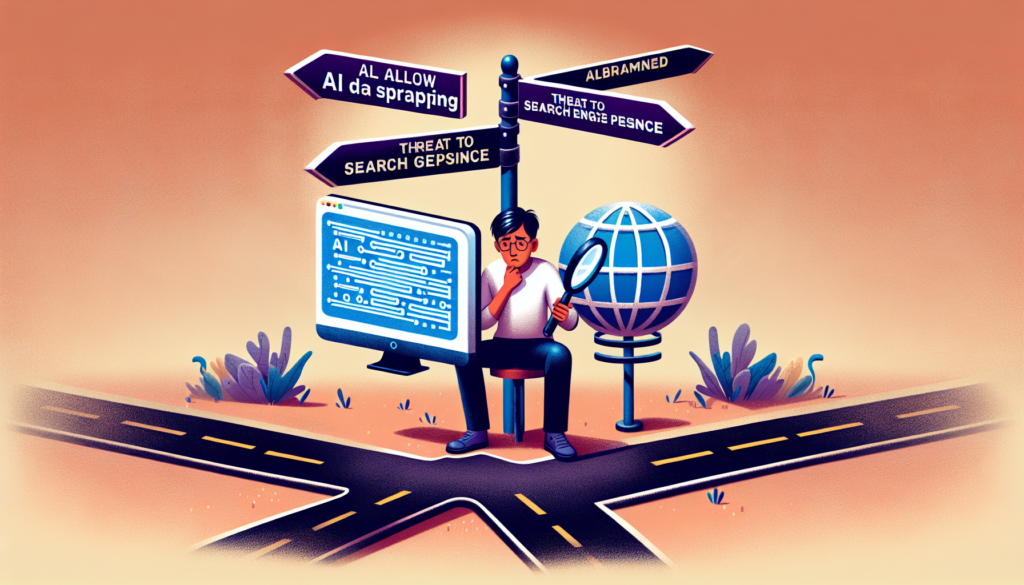
 ## The Future of Digital Publications: Maneuvering Through Google’s AI-Infused Search Terrain
## The Future of Digital Publications: Maneuvering Through Google’s AI-Infused Search Terrain
As the online environment transforms, digital publications find themselves at a pivotal moment, wrestling with the consequences of a recent verdict against Google. The ruling, which deemed Google a “monopolist,” carries extensive ramifications for publishers who now confront a challenging dilemma: permit Google to utilize their content for AI-generated search results or risk diminished visibility in search rankings. This article investigates the intricacies of this situation and examines possible future scenarios for the sector.
The Googlebot Dilemma
At the heart of the matter is the Googlebot, the web crawler employed by Google to index content throughout the web. Publishers are confronted with a tough choice: allow Google to harvest their content for AI-generated responses or block the Googlebot, thereby sacrificing search exposure. This paradox has positioned many publications precariously, as excluding Googlebot could result in a significant decrease in traffic and revenue.
The Justice Department’s Involvement
In light of these predicaments, the Justice Department is contemplating various strategies to tackle Google’s supremacy. Possible actions may include dismantling segments of the company, like Chrome or Android, or compelling Google to divulge search data to its competitors. These initiatives aim to create a more equitable environment and provide smaller AI startups and alternative search engines with a viable opportunity.
The Effect on Smaller AI Startups
Google’s simultaneous use of its primary crawler for both AI Summaries and routine searches grants it a notable edge over smaller AI startups. While Google can freely access enormous quantities of training data, smaller enterprises need to compensate publishers for comparable access. This inequality places startups at a disadvantage as they strive to contend with Google’s vast resources and outreach.
The Economic Pressure on Publishers
The financial ramifications for publishers are severe. With online ad revenues already waning, the threat of losing organic search traffic owing to AI-generated responses poses a significant worry. Reports indicate that Google’s AI-driven search results could cause a 20 to 60 percent decline in organic traffic, intensifying the economic pressure on an already faltering industry.
Searching for Answers
As the sector navigates these challenges, some publishers are making efforts to negotiate content agreements with Google. However, these initiatives have largely been futile, with Reddit standing out as a rare exception. The publishers’ lack of negotiating power highlights the necessity for regulatory measures to secure a fair and competitive digital ecosystem.
Conclusion
The fate of digital publications is uncertain as they maneuver through the complexities of Google’s AI-infused search landscape. With the Justice Department weighing various actions to confront Google’s dominance, the industry is poised for a resolution that could transform the digital framework. As publishers endeavor to retain visibility and income, the approaching months will be vital in determining the future direction.
Q&A Section
Q1: What main challenge do publishers face regarding Google’s AI-generated search results?
A1: Publishers have to decide between permitting Google to utilize their content for AI-generated results or blocking the Googlebot, which might result in decreased search visibility and revenue.
Q2: What measures is the Justice Department exploring to tackle Google’s dominance?
A2: The Justice Department is looking into fragmenting portions of Google, mandating it to share search data with competitors, or terminating its default search-engine agreements.
Q3: In what way does Google’s use of its primary crawler affect smaller AI startups?
A3: Google’s application of its primary crawler for both AI Summaries and routine searches provides it access to large quantities of free training data, placing smaller AI startups at a disadvantage.
Q4: What financial consequences could Google’s AI-generated search results inflict on publishers?
A4: Reports suggest that Google’s AI-driven search results may result in a 20 to 60 percent reduction in organic search traffic, aggravating the financial difficulties faced by publishers.
Q5: Have publishers succeeded in negotiating content agreements with Google?
A5: The majority of publishers have not succeeded in negotiating content agreements with Google, with Reddit being a significant exception.